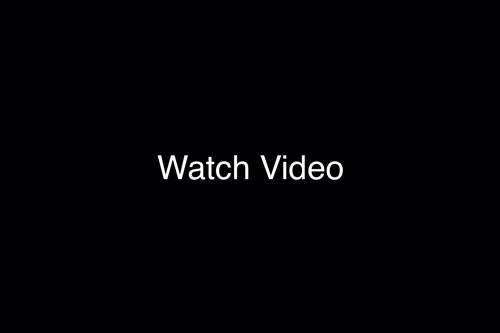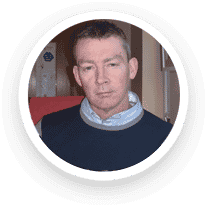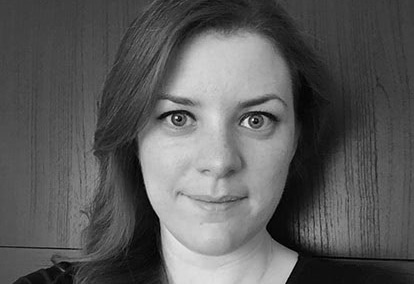Join over 1500 other people both old and young who have used this course to start a career in pharma without any previous industry experience
Including:
- Homemakers
- Self Employed
- Unemployed
- Restaurants – Chef, Cook, Restaurant Manager, etc
- Healthcare – Nurse, Healthcare Assistant, Caregiver, etc
- Manufacturing – Production Operator, Assembler, Packaging, etc
- Meat Processing – Operator, Butcher, etc
- Defence Force/Military – Army, Navy, Air Force, Air Corps, etc
- Construction – Electrician, Carpenter/Joiner, Foreman, General Operative
- Warehouse – All Warehouse Workers
- Sales/Business – Retail Sales, Pharma Sales, Business, Accountants, Finance, etc
- Other – Farmers, Designers, Architects, Airline Staff, Beauty/Hair Saloon etc

What Starter Level Roles I Could Retrain For?
STEP 1, take this conversion course to retrain for starter level roles such as:
- Process Technician, Chemical Process Technician, BioProcess Technician
- Manufacturing Technician, Production Technician
- Manufacturing Operator, Production Operator
- Packaging Operators, Packaging Technician
STEP 2, then take our follow on programs to get a jobs with a higher salary. Typical roles;
What You’ll Learn – There Are 2 Modules in This 10-Week Program
Module 1 – Manufacturing Safe Medicines and Medical Devices (GMP) (Weeks 1 – 6)
After you complete this module:
- You’ll be able to talk to employers with confidence about the systems and processes used in pharmaceutical and medical device manufacturing and about the rules and regulations that you need to follow.
- You’ll have enough technical knowledge to work in this environment.
-
You’ll be able to write reports and reference materials in a manner consistent with the professional norms of this industry.
Module 2 – Advanced Job Hunting For the Pharma Industry (Weeks 7-10)
After you complete this module:
- You’ll know about your local BioPharma/MedTech manufacturing industry and where the jobs are.
- You’ll know which jobs you’d be perfect for and where to find them.
- You’ll be able to assess your own skill set and know how to sell that to employers.
- You’ll know what employers expect from your application and job interview.
- You’ll be able to follow a step-by-step process to find, apply and successfully interview for your first job in this industry.
If you’re spending money on an education program, make sure you choose one you’ll finish!
With every GetReskilled ONLINE program;
- We use one centralized platform (Moodle) where you can log into your classroom anytime. Each week, you’ll watch videos and complete a series of quizzes, tests, interactive activities, and projects. The course materials are available 24/7 and nothing requires you to be online at a specific day or time. i.e there are NO ZOOM classes and NO WEBINARS! Study anywhere, anytime, for example after the kids have gone to bed or on the weekend.
- Your working schedules are unpredictable so we offer flexible delivery. Slow down, speed up or pause the delivery of the program.
- We release only one week’s worth of material at a time and then MANUALLY check your activity logs at the end of every week to make sure that you are keeping up with your work.
- You’ll have a dedicated course leader who will email or telephone you if it looks like you’re starting to fall behind. They will work with you to develop a study plan to get you back on schedule and finish the course.
This helps us to spot any potential issues early and helps you completely finish the program.

Here from people who have taken this course

John Ryan
“The professionalism and passion of the lecturers comes across in the tutorials which gives the student confidence and encouragement to keep on top of the course. The course content material is concise and interesting. The timing of the release of the lessons is perfect, the student moves at a comfortable pace, one step at a time.”

Renato Chato
“This course was very informative and could greatly enhance our knowledge and understanding on Pharma Manufacturing practices (GMP, GDP, etc.). The training experience was great and details were clear. Keep it up, guys!”

Michael Cheong Yim Poh
“Once you tune in your mind set to studying online, it’s a great way to learn as you manage the pace yourself.”
Start Your Application
Click below to start your application.
Talk To Our Team
Singapore
Call Geraldine: +(65) 6513 9500
Delivered by an Industry Expert
Dr. Joe Brady
Full-Time Validation Lead
Lecturer, Technological University Dublin, Ireland
Senior Associate, DPS Education
Dr. Joe Brady is a full-time practicing Validation Lead and an assistant lecturer with Technological University Dublin (TU Dublin), in the School of Chemical and Pharmaceutical Sciences. Joe is a certified trainer and highly experienced in competency-based training. He designs and prepares educational modules and full academic programs ranging from MSc, MEngSc. BSc, to Certificate level, for a range of academic institutions.
He is also a supervisor for MSc/MEngSc and PhD theses. Joe has over twenty years of project experience in the pharmaceutical, biopharmaceutical and medical device industries in Singapore, China, Ireland, The Netherlands, Belgium, France, and the USA.
Meet Your Online Classroom Support Team
We have a team of in-house experts to provide guidance and support, whenever you need it.
Course Leaders & Coordinators

Your Course Leaders & Coordinators are here to provide you with answers, tips, and are going to check your progress weekly to keep you on track and will reach out to you by email or even by phone if you fall behind!
Career Coaching

Meet Claire who runs GetReskilled’s Advanced Career Coaching Programme – our specially devised job hunting course that helps our trainees take that final step into employment by leading them through the job hunting process.
Your 10-Week Class Schedule
Your Class Director is going to check your study logs at the end of every week and will only release the following week’s materials to you if you have been regularly logging in and completed the previous week’s activities.
And he or she will proactively follow up with you to keep you on track.
Module 1 – Manufacturing Safe Medicines and Medical Devices (GMP) (Weeks 1-6)
Module 2 – Advanced Career Coaching (Weeks 7-10)
Show Off Your New Skills: Get a Certificate of Completion
Once the course is over, complete a written assignment to get certified in Manufacturing Safe Medicines & Medical Devices Course
Add it to your resume, your LinkedIn profile or just get that well-earned raise you’ve been waiting for.

Frequently Asked Questions
Price & Start Dates
Or S$ 799/month for 4 months.
Price Includes:
- End of week progress checks by us to MAKE SURE you finish the program
- Delivered online so you can learn from home (or anywhere) on your own schedule
- Robust job hunting program that will seriously help you find a job
- Regular & ongoing access to a dedicated career coaching counsellor
No Hidden Fees
- No application fees
- No registration fees
- No resource/book fees
- No certificate fees
Application Deadline: Wednesday 23rd July
Program Starts: 30th July
Start Your Application
Click below to start your application.
Talk To Our Team
Singapore
Call Geraldine: +(65) 6513 9500
Got More Questions?
Great, fill out the form below.
Or chat with us via the blue chat bubble in the bottom right corner of the page. We’re always happy to help!


